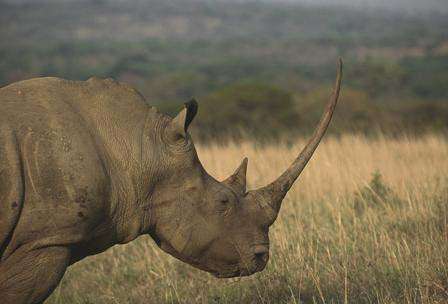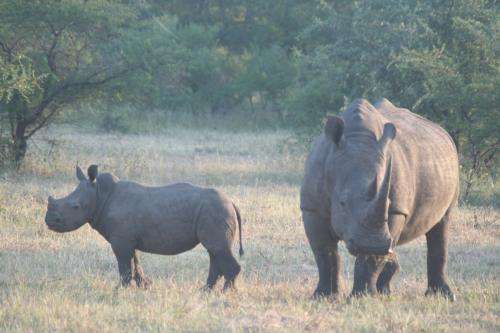This image shows a white rhinoceros. Credit: Swedish University of Agricultural Sciences
White rhinoceros may be extinct in twenty years with the current poaching rates. The loss of this megaherbivore is in itself a tragedy, but it may also have tremendous effects on the ecosystems they now live in.
The white rhino (Ceratotherium simum), and other megaherbivores, are key drivers of ecosystem functioning because they´re not controlled by predation.
A new study by Joris Cromsigt and Mariska te Beest, published in Journal of Ecology, highlights the role of the white rhino in the savannah ecosystems.
Earlier empirical studies on the ecosystem impact of megaherbivores are strongly biased to African elephant with very little contemporary evidence for other megaherbivore species. Cromsigt and te Beest quantifies how rhino recolonized Kruger National Park (KNP) following their re-introduction in the 1960s to create a unique 'recolonization experiment' and tests how this megagrazer is affecting the structure of savanna grasslands.
This image shows a rhino with calf. Credit: Swedish University of Agricultural Sciences
More information: The article is published online in Journal of Ecology 12 feb 2014, DOI: 10.1111/1365-2745.12218
Journal information: Journal of Ecology
Provided by Swedish Research Council

























